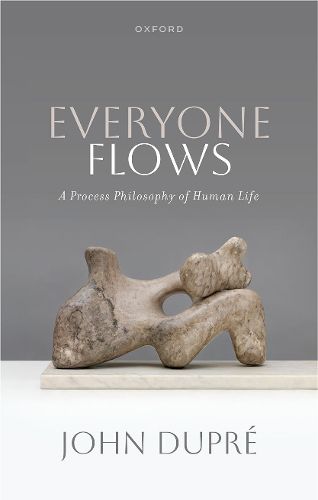Readings Newsletter
Become a Readings Member to make your shopping experience even easier.
Sign in or sign up for free!
You’re not far away from qualifying for FREE standard shipping within Australia
You’ve qualified for FREE standard shipping within Australia
The cart is loading…






Everyone Flows starts with an ancient and fundamental philosophical question: whether we live in a world of things, stable, autonomous, and with sharp boundaries, or a world of processes in flux, in which stabilities are only transient and processes are inextricably intertwined with one another. The first three chapters of the book make a forceful argument for the latter view, especially as applied to living beings. Special attention is given to organisms and lineages as processes, the latter being the processes in which evolution occurs. Lineages generate organisms, but organisms compose lineages, illustrating the deep hierarchical interconnections of the world of process. The interconnectedness of life is amplified with an extended consideration of the omnipresence of symbiosis, and some reflections on the processual character of the pregnant mammal.The final three chapters of the book apply the processual view of nature to problems more specific to the human. A starting point here is the uniqueness of the human lineage, in respect of its sociality and behavioural plasticity, which together enable a unique division of labour, and also in respect of the extent and complexity of the niche that humans have constructed for their occupation. It is shown that the processual perspective on the human organism and lineage offers surprising and radical insights into topics including the nature of personal identity, the possibility of indefinite life extension, human nature, human classifications (including those provided by race and gender), and freedom of the will.
$9.00 standard shipping within Australia
FREE standard shipping within Australia for orders over $100.00
Express & International shipping calculated at checkout
Everyone Flows starts with an ancient and fundamental philosophical question: whether we live in a world of things, stable, autonomous, and with sharp boundaries, or a world of processes in flux, in which stabilities are only transient and processes are inextricably intertwined with one another. The first three chapters of the book make a forceful argument for the latter view, especially as applied to living beings. Special attention is given to organisms and lineages as processes, the latter being the processes in which evolution occurs. Lineages generate organisms, but organisms compose lineages, illustrating the deep hierarchical interconnections of the world of process. The interconnectedness of life is amplified with an extended consideration of the omnipresence of symbiosis, and some reflections on the processual character of the pregnant mammal.The final three chapters of the book apply the processual view of nature to problems more specific to the human. A starting point here is the uniqueness of the human lineage, in respect of its sociality and behavioural plasticity, which together enable a unique division of labour, and also in respect of the extent and complexity of the niche that humans have constructed for their occupation. It is shown that the processual perspective on the human organism and lineage offers surprising and radical insights into topics including the nature of personal identity, the possibility of indefinite life extension, human nature, human classifications (including those provided by race and gender), and freedom of the will.